The Best of 2005: Movies
Well, it's taken me a while to get around to posting my dozen favorite pictures of 2005, but, hey, such is the price of being a movie geek in a state where the largest newspaper in town refuses to advertise NC-17 flicks and the Angelica is mistaken as something you order at the Olive Garden. In short, it took me a while to finally see all the flicks I really wanted to see for '05.
Here are my personal faves, in ascending (and therefore dramatic) order:
Sure, there were more consistently accomplished movies I could have placed in this spot (Match Point barely missed the list), but give Kiss Kiss Bang Bang a big gold star for marking the triumphant return of director-writer Shane Black, the onetime wunderkind whose script for Lethal Weapon launched the era of the superstar screenwriter. A caramel-covered confection of film noir, pulp detective fiction and B-movies might be an eclectic choice for a year-ender best-of, but what can I say? Playful and fiercely coy, this is for people who love movies, with dialogue so pointed and lacerating it leaves burn marks. As the motormouthed crook-turned-movie star, Robert Downey Jr. hasn't been this good in a film for a long, long time, and, by all rights, the lovely Michelle Monaghan should be reeling in lots of script offers as a result.
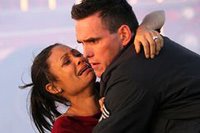 11. Crash
11. Crash
The melting pot of Los Angeles reaches the proverbial boiling point in this film by Paul Haggis, here making his directorial debut after penning the Oscar-winning Million Dollar Baby. This sprawling, ambitious tale about racism in the City of Angels follows a dozen characters loosely connected to events that unfold after two young black men carjack an SUV belonging to the district attorney and his wife. Crash is stark and sometimes downright ugly, and it avoids cliche by consistently subverting our expectations. Certainly, the provocative script is helped by an ensemble cast that includes knockout performances by Matt Dillon, Terrence Howard, Sandra Bullock, Thandie Newton and Don Cheadle. It would have been easy for the movie to offer a bit of preaching, but Haggis doesn't pretend there are easy solutions to racism. Instead he dares you to search for answers yourself. 10. King Kong
10. King Kong
Lord of the Rings director Peter Jackson finally indulged his lifelong love affair with the seminal giant monster flick, with the result being a three-hour mash note to movie magic. It would have been easy to let things collapse under the weight of eye-popping special effects, but credit goes to Jackson and his screenwriting team for breathing genuine personality into the big ape. Buoyed by Naomi Watts' performance as Ann Darrow-in-distress, King Kong serves up one of the most affecting romances of the year. But no one goes to a monster picture for the mushy stuff. Thankfully, the CGI-generated spectacle is fit for a Kong, from the recreation of New York in the 1930s to the tragic climax atop the Empire State Building. Oops. I hope I didn't give anything away.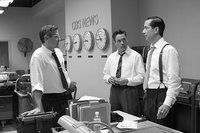 9. Good Night, and Good Luck
9. Good Night, and Good Luck
George Clooney was certainly Hollywood's-fly-in-the-ointment liberal this year with his star turn in Syriana and his directing-writing turn in this period piece about one of the near-bastions of great broadcast journalism, Edward R. Murrow. David Strathairn is uncanny as the chain-smoking broadcast reporter who took on Commie-baiting Sen. Joe McCarthy on CBS' "See It Now" news program. For me, Good Night, and Good Luck is more of a sentimental favorite than necessarily a superb movie; it can be a bit earnest for its own good, and, yes, the film does play a little fast and loose (but only a little) with Murrow's role in bringing down McCarthyism. Some saw the film as a direct indictment on today's timid press in the post-9/11 world, but even without that ostensible topicality, Clooney's tribute to Murrow and Fred Friendly has a lot to say about the vitality of a questioning, skeptical and restless press -- and why the supposedly sacrosanct goal of objectivity can be its own sort of bogeyman.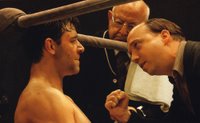 8. Cinderella Man
8. Cinderella Man
A shameless and undeniably effective tear-jerker about real-life prizefighter James J. Braddock, whose rags-to-riches-to-rags-to-riches saga during the Great Depression made him a sort of Seabiscuit for people who preferred their fairy tales in smoke-filled arenas. Why this crowd-pleaser took a dive at the box office remains a mystery for bigger minds to debate. In my humble estimation, Cinderella Man is director Ron Howard's most successful flick to date, elevated by a tremendous script (Cliff Hollingsworth and Akiva Goldsman), lush cinematography by Salvatore Totino, and performances from the reliable Russell Crowe and Paul Giamatti, who plays Braddock's loyal manager. And consider this: It ain't so easy to make a compelling movie about a likeable character who is relatively free of fatal flaws.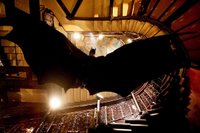 7. Batman Begins
7. Batman Begins
In 2000's Memento, director-writer Christopher Nolan went all loopy and cranked out a thriller in reverse chronological order, so perhaps it's only fitting that his sleight-of-hand in this boffo action-adventure yarn is to treat a comic book superhero with ironic-free seriousness. And it works. Christian Bale is excellent as the conflicted protector of Gotham, and he gets able support from a stellar cast that includes Cillian Murphy, Gary Oldman, Michael Caine, Tom Wilkinson and L. Ron Hubbard wet nurse Katie Holmes. Sleek and stylish, Batman Begins is a slippery picture to define. While there is no disputing the film's comic-book inspiration, Nolan's thematic interests -- particularly the tension between justice and vigilantism -- are the stuff of grown-ups. In the process, Batman Begins establishes a whole new yardstick to measure comic-influenced motion pictures. 6. The Constant Gardener
6. The Constant Gardener
A taut, somewhat opaque adaptation of the John le Carre novel that heralds the English-language film debut of Brazilian director Fernando Meirelles, the genius behind City of God. Constant Gardener is ostensibly a thriller, but it is about much more -- not the least of which is an unflinching assessment of the world's reaction to Africa's AIDS epidemic. Most of all, however, the picture is a uniquely fascinating love story, in which a rigid British diplomat (Ralph Fiennes) falls in love all over again with his recently slain wife (Rachel Weisz), a woman whom he truly gets to know only after she is gone. Weisz is incredible, incidentally; her luminous performance is the glue that holds together this ingenious story. 5. Mysterious Skin
5. Mysterious Skin
Who knew that Gregg Araki, a favorite whipping boy of indie film, not only had a good movie in him, but a great one? But there it is: Mysterious Skin is a powerful, disturbing story of child sexual abuse and the tragic behavior it engenders in its victims. The picture is definitely not for the faint of heart; much of it is creepy and cringe-worthy. Such is the consequence of telling a story that revolves around the impact of a pedophile Little League baseball coach. Araki expertly interweaves his parallel narratives of male prostitute Neil (Joseph Gordon-Levitt) and the equally lost, if decidedly asexual, Brian (Brady Corbet), both of whom share a horrific secret. Not a pleasant movie, but an occasional kick to the consciousness can be good for you.
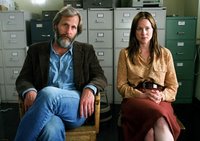 4. The Squid and the Whale
4. The Squid and the Whale
This is the stuff of indie fodder -- a despondent, self-obsessed writer; a dysfunctional family; a confused young man coming of age; the smug bourgeoisie. So why is this semiautobiographical picture from director-writer Noah Baumbach so uniquely terrific? Because every note rings with a musical clarity. The Berkmans are the sort of family that makes all of us feel a little more stable by comparison: Bernard (Jeff Daniels) is the arrogant writing professor who refers to Kafka as "a predecessor" and lets his son's girlfriend pick up the tab at dinner; wife Joan (Laura Linney) has racked up years of affairs and is now pushing a divorce; son Walt (Jesse Eisenberg) has the wrongheaded notion that his father is worth emulating; and youngest son Frank (Owen Kline) is on the verge of a world record for exhibitionist masturbation. Beautifully acted, trenchant, savagely funny, heartbreaking and consistently fascinating (are there any adjectives I left out?), The Squid and the Whale is a small film, but a breathtaking one.

3. Munich
Steven Spielberg's meditation on vengeance has become an unfortunate lightning rod, with the ardent pro-Israel crowd saying the movie is too forgiving of Palestinian terrorists and some in the pro-Palestinian camp dismissing the flick as Zionist propaganda. A pox on both their houses. The film isn't quite as nefarious as those in the culture wars would have you believe. What Spielberg and screenwriters Tony Kushner and Eric Roth have to say about terrorism is as simple as it is irrefutable: Even when a violent response to violence is wholly justifiable, there are consequences (you know, that whole "an-eye-for-an-eye and the world ends up blind" shtick). At any rate, Munich is more thriller than polemic, and it succeeds magnificently on that level, brimming with jittery camerawork and elaborate set pieces that would have Hitchcock jonesing for more. Eric Bana is excellent as a soft-spoken Mossad agent dispatched to assassinate Palestinian terrorists who masterminded the slayings of 11 Israeli athletes at the 1972 Munich Olympics. Only once does Spielberg lapse into heavy-handedness, when Bana replays the slayings in his head while having sex with his wife. I'm familiar with the trick about thinking baseball -- but bloodshed? Now, that's a buzzkill.
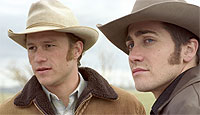
2. Brokeback Mountain
Look past the hype (albeit justified hype) about this being an "important" film and a "milestone" film and all those other adjectives sure to inspire backlash, and you'll find a moving and tragic love story. Ennis Del Mar (Heath Ledger) and Jack Twist (Jake Gyllenhaal) meet in the summer of 1963 herding sheep on Brokeback Mountain in Wyoming, and the friendship between the two young men transitions, both seamlessly and inevitably, into a love affair. Brokeback is their Garden of Eden, a scenic paradise far away from the social constraints of their world; it remains an ideal as the two men age and move on, stuck in loveless marriages that lead to two more victims of societal restrictions. Gyllenhaal is a trifle miscast -- the filmmakers' attempt to age him in the film's third act is reminiscent of Giant, when we were supposed to believe Rock Hudson and James Dean were middle-aged 'cause they had gray hair -- but Ledger is astonishingly good. Director Ang Lee and screenwriters Larry McMurtry and Diana Ossana deserve credit for making an important film by eschewing its obvious political and social underpinnings. We know that Ennis and Jack are in the Wyoming where Matthew Shepard would be beaten to death in 1998, but Brokeback Mountain trusts its audience to make its own conclusions without being slapped into awareness.
Honestly, I can't put it any better than Chaz over at Dustbury: : "Every scene, every line, every offhand gesture is bent to the service of the story of these two men. And in that specificity, paradoxically, lies its universality: denied easy access to the stereotypes we might desire, we are forced to look at these characters in comparison, not to a pattern, but to ourselves. Brokeback Mountain speaks to everyone who's ever had to cover up the most important facts of his life."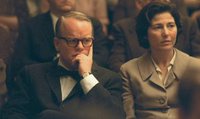 1. Capote
1. Capote
Philip Seymour Hoffman delivers the knockout performance of the year as Truman Capote. It is a testament to this talented actor that he gets all the surface traits perfectly -- the babylike voice, the self-consciously effete mannerisms -- but don't mistake this for simple impersonation. Hoffman accomplishes the supernatural feat of transforming himself into the flesh-and-blood man who revolutionized true-crime writing, and journalism in general, with his blockbuster "non-fiction novel" of 1966, In Cold Blood. The actor is well-served by his old college chums, first-time director Bennett Miller and first-time screenwriter Dan Futterman, who use the picture as a springboard to examine how one of the great works of 20th century literature resulted from unchecked manipulation. It has been a while since character-driven drama was so, well, um, dramatic, I guess. In the process, the filmmakers provide one of the most successful and complex examinations of the creative life ever committed to celluloid.
 12.
12. 




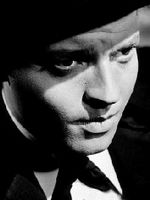




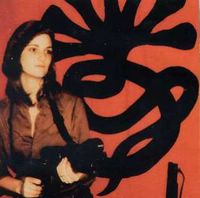

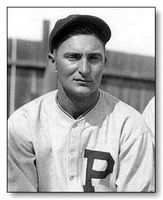

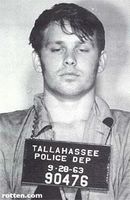


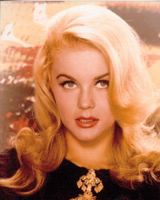





5 Comments:
Where's Match Point?
Even by cheating with a top 12 instead of the traditional 10 and there's no space for A History of Violence or Broken Flowers? Where's the love? Also Sin City was the envelope-pushing comic-influenced film of the year.
Lots of gay going on here. Peculiar.
Chase calls me when I post. Help!!!
How could you forget Hostel? Or Dukes of Hazzard? That just ain't right!
Post a Comment
<< Home